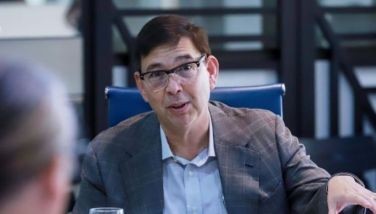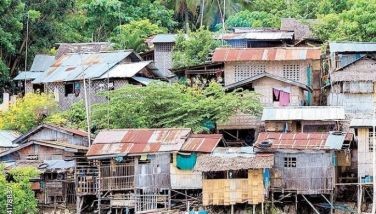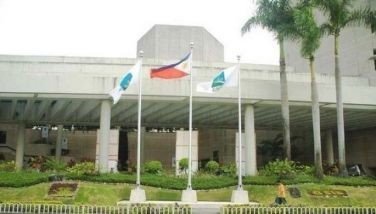Next president faces fiscal challenge, says Fitch Solutions
MANILA, Philippines — The research arm of credit rater Fitch Group sees the next Philippine president facing a fiscal challenge amid the country’s widening budget deficit as the economy has yet to fully recover from the impact of the COVID-19 pandemic.
Fitch Solutions Country Risk & Industry Research said in a report it is now expecting a wider budget shortfall equivalent to 7.9 percent of gross domestic product instead of 6.9 percent of GDP for this year.
“We at Fitch Solutions flag the challenge the next president will face from the deterioration in the Philippines’ fiscal position during the pandemic. While there is a need to support the Philippine economic recovery given the loss of employment and economic output due to the pandemic, the prioritization of growth over deficit consolidation in 2022 could leave the next president facing fiscal challenges,” it warned.
The projected budget deficit for 2022 is narrower than the 8.3 percent of GDP shortfall recorded last year, but still above the five-year pre-pandemic average of 2.4 percent.
“The Philippines will run a narrower, albeit still large, fiscal deficit in 2022 as recovering revenues offset supportive expenditure measures,” Fitch Solutions said.
Late last month, President Duterte signed the P5-trillion national budget for 2022, 11.5 percent higher than the previous year.
In signing the final budget of his six-year presidential term, Fitch Solutions said Duterte expressed his concern that the budget allocations could once again be disrupted by COVID, with the Omicron variant posing a threat.
“While we believe that this is a prominent threat to the economy, we expect growth to come in stronger than in 2021 and the normalization of economic activity to broadly continue over the course of the year,” Fitch Solutions said. “As such, while the budget continues to provide economic stimulus, revenue growth should be such that the overall deficit narrows in 2022.”
The Fitch unit sees expenditures growing faster at 11.2 percent this year from last year’s 11 percent, as the unused funds from the 2021 budget could be spend in 2022.
The Department of Education (DepEd) continued to be the primary source of funding receiving P788.5 billion or 16 percent of total, followed by the Department of Public Works and Highways (DPWH) with P700 billion.
However, the budget of the Department of Health (DOH) was reduced by 10.4 percent to P188.3 billion.
“With the economic recovery disrupted in 2021, the 2022 budget signals policymakers’ intention to accelerate the recovery in 2022, in line with its expectations for real GDP growth of seven to nine percent,” Fitch Solutions said.
Likewise, Fitch Solutions sees revenues growing faster at 14 percent this year from last year’s seven percent as the country’s economic recovery strengthens.
It sees the country’s GDP growth accelerating to 6.5 percent in 2022 from about 4.5 percent in 2021, lower than the seven to nine percent target set by the Development Budget Coordination Committee (DBCC).
Fitch Solutions also expects the country’s public debt-to-GDP ratio surging to 62.9 percent in 2022 from 39.6 percent in 2019.
“For now, the Philippines fiscal outlook has not led to a significant increase in borrowing costs, with the Philippines’ risk premia – as shown by the credit default swap spread – down from its 2020 highs,” it added.
According to Fitch Solutions, the next President would likely have to rein in spending to reduce the fiscal deficit to maintain investor confidence, which could result in challenging spending decisions.
It explained the economy is in need of infrastructure spending but also improvements to government services such as education and health care to boost its longer-term growth potential.
“However, this may force cutbacks in other areas of spending, which could prove difficult if the next President has to balance competing demands for funding from regional governments,” it said.
- Latest
- Trending
































